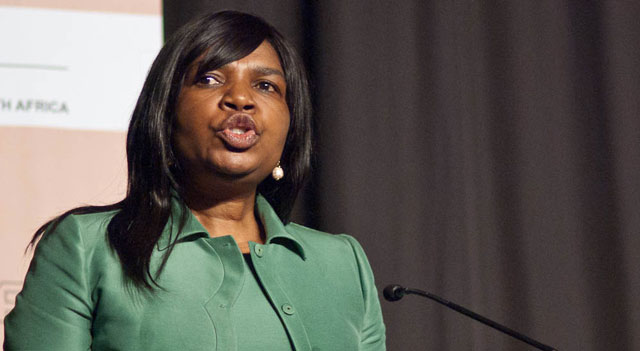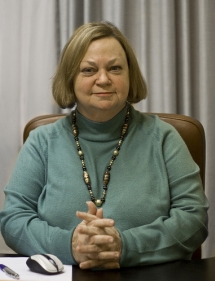
Communications minister Dina Pule and shadow minister Marian Shinn clashed in parliament on Tuesday over government policies in the information and communications technology (ICT) industry and a recent department of communications colloquium that discussed changes to legislation in the sector.
Shinn, a Democratic Alliance MP, laid into the ANC and the department of communications, saying government had failed to focus on the big issues that would grow the industry.
After the budget vote presented by Pule, Shinn paid tribute the minister’s predecessor, Roy Padayachie, who passed away at the weekend, but said he had served in a government that had “no clue” about the role communications played in economic growth, job creation and the delivery of services.
“If it did, the president would have given it weight in his state of the nation address and ensured it was a key player in the infrastructure development plan,” Shinn said.
“We have to understand that without widespread, high-speed and accessible communications infrastructure, we cannot educate, we cannot produce, we cannot trade, we cannot govern, we cannot deliver services.”
Shinn said there was palpable cynicism and anger at the recent colloquium about the department of communications’ ability to shape the sector free of vested interests. There was cynicism “from the start” when the opening panel compromised “entrenched incumbents” who had “shaped the communication environment to their own advantage”.

“I doubt many of those who took part, except for the inner circle, expect much that is new and necessary to come from the colloquium. So it’s likely to be business as usual as the department plays it safe.”
But Pule hit back, saying the colloquium represented only the beginning of the policy review process.
“We know the processes of parliament and we know our responsibilities,” she said. “So, if you missed what I said at the opening [of the colloquium], I don’t know what to say here, because I did indicate that this was a process of allowing everybody else to participate… Other people will still be able to participate and maybe you will also be able to participate.”
Shinn said government was “not listening” to the “new and nimble dynamic players” who will grow the sector. “It was clear at the … colloquium that the event was held to tick the box of public participation as one of the necessary steps in drafting legislation.”
She added: “Participants were given scant warning about the event and little time to become familiar with the documents necessary.”
SA’s communications industry was in “desperate need of transformation”, Shinn said. “It needs to break loose from the stranglehold of a fixed-line monopoly, a mobile network duopoly and a lethargic regulatory process. These forces have warped the communications landscape to their own advantage.
“Bold and swift action is necessary to make the sector more accessible and affordable to new and nimble entrepreneurs that are keen to build on the opportunities that technologies offer them. Without their fresh energy, SA will fail to exploit its full economic and developmental potential.”
Shinn accused the department of engaging in “endless consultation and consensus-seeking [while] economic opportunities pass the country by and SA slips further and further down the global rankings of ICT-empowered nations”.
“There has been a succession of disinterested and incapable leadership in both cabinet and the department.”
She called on government to sell its stake in Telkom as part of the fixed-line operator’s efforts to sell 20% of its equity to Korea’s KT Corp and to give private SA investors a greater stake in “what should become a communications infrastructure wholesaler”.
She said Sentech and Broadband Infraco, which had “done little to deliver affordable communications infrastructure”, should be folded into Telkom.
Pule said she would not respond to Shinn’s comments on Telkom and KT Corp. “I have never spoken about that,” she said tersely.
Shinn said the Universal Service & Access Agency of SA, which manages a fund to be used to take ICT infrastructure into underserviced areas, should be closed down. “It has achieved little except enrich its managers, many of whom are being investigated by the Special Investigations Unit.”
The Presidential National Commission on ICT also served “no purpose and should be closed immediately” and the domain name authority that manages the .za Internet domain should be handed back to the private sector. — (c) 2012 NewsCentral Media




